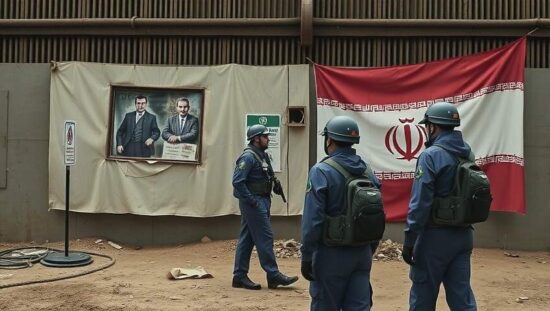Iran’s President’s Advisor Warns of Potential Retaliatory Measures Due to Ongoing Threats from External Forces
Iran’s President’s Advisor, Ali Shamkhani, has issued a warning against the continuous pressure on Iran by external forces. In a post published on platform X, Shamkhani highlights the possibility that persistent external threats and the danger of Iran becoming a target for military attacks may lead to retaliatory measures. These measures include the expulsion of International Atomic Energy Agency (IAEA) inspectors and the suspension of cooperation regarding the nuclear deal.
Shamkhani also mentions the potential relocation of enriched materials to secure locations as a possible retaliatory step. In an interview with Iranian television, Ali Laridschani, advisor to the Supreme Leader Ali Chamenei, warns the United States against making a “strategic mistake.” The increasing military threats have sparked a debate in Iran about the necessity of acquiring nuclear weapons. The Iranian people are expected to exert pressure on the government to ensure that the step is deemed necessary for the country’s protection.
On March 1st, US President Donald Trump announced that he had sent a letter to Iran’s Supreme Leader, aiming to prevent Tehran from further developing nuclear weapons. Trump mentioned in an interview with Fox Business Network that there are two options: military action or a diplomatic solution. During a visit to the White House with Israeli Prime Minister Benjamin Netanyahu, Trump revealed that a high-level meeting with Iran was scheduled to take place on Saturday. The meeting is expected to be almost at the highest level.
Iran’s Foreign Minister Abbas Araghchi stated on platform X that the meeting would take place in Oman and described it as an indirect meeting. While Trump emphasized that it would be a direct dialogue, Araghchi referred to it as indirect, implying that mediators would exchange messages between the two sides.





